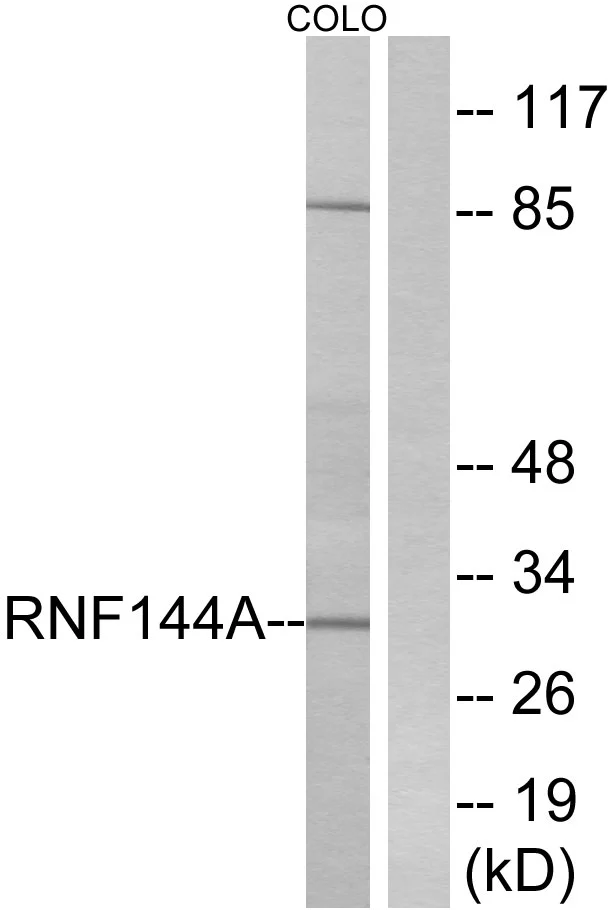
WB analysis of COLO cell lysates using GTX86994 RNF144A antibody. The lane on the right is blocked with the synthesized peptide.
RNF144A antibody
GTX86994
ApplicationsWestern Blot
Product group Antibodies
ReactivityHuman, Mouse
TargetRNF144A
Overview
- SupplierGeneTex
- Product NameRNF144A antibody
- Delivery Days Customer9
- Application Supplier NoteWB: 1:500~1:1000. *Optimal dilutions/concentrations should be determined by the researcher.Not tested in other applications.
- ApplicationsWestern Blot
- CertificationResearch Use Only
- ClonalityPolyclonal
- ConjugateUnconjugated
- Gene ID9781
- Target nameRNF144A
- Target descriptionring finger protein 144A
- Target synonymsRNF144, UBCE7IP4, UIP4, hUIP4, E3 ubiquitin-protein ligase RNF144A, UbcM4-interacting protein 4, probable E3 ubiquitin-protein ligase RNF144A, ring finger protein 144, ubiquitin conjugating enzyme 7 interacting protein 4
- HostRabbit
- IsotypeIgG
- Protein IDP50876
- Protein NameE3 ubiquitin-protein ligase RNF144A
- Scientific DescriptionThe protein encoded by this protein contains a RING finger, a motif known to be involved in protein-DNA and protein-protein interactions. The mouse counterpart of this protein has been shown to interact with Ube2l3/UbcM4, which is an ubiquitin-conjugating enzyme involved in embryonic development. [provided by RefSeq, Jul 2008]
- ReactivityHuman, Mouse
- Storage Instruction-20°C or -80°C,2°C to 8°C
- UNSPSC12352203
References
- Wu YH, Hong CW, Wang YC, et al. A novel histone deacetylase inhibitor TMU-35435 enhances etoposide cytotoxicity through the proteasomal degradation of DNA-PKcs in triple-negative breast cancer. Cancer Lett. 2017,400:79-88. doi: 10.1016/j.canlet.2017.04.023Read this paper





